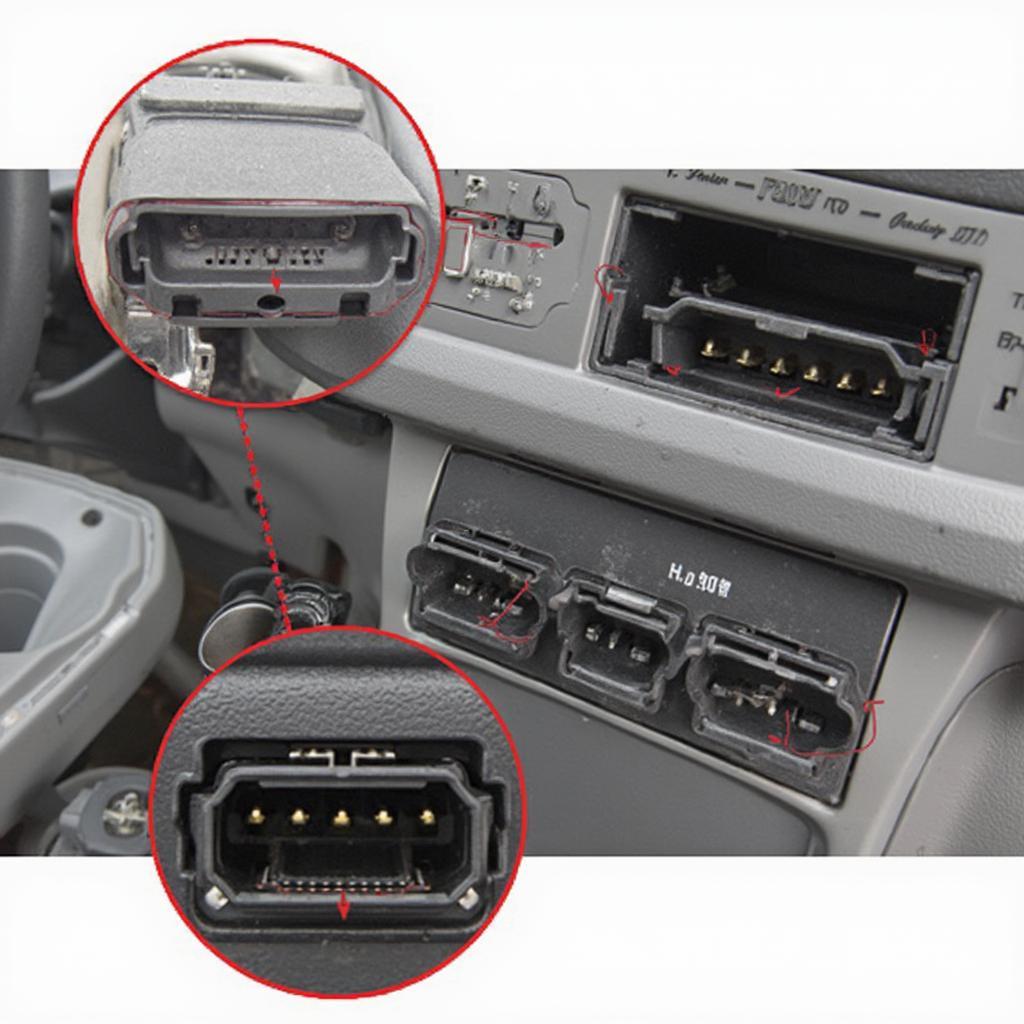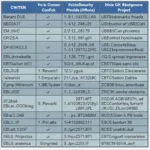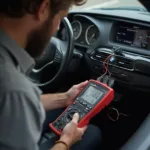Do Freightliner trucks have OBD2 ports? This is a common question for Freightliner owners wanting to diagnose engine problems. Understanding the diagnostic capabilities of your Freightliner is crucial for maintenance and repair. This article delves into the intricacies of OBD systems in Freightliner trucks, covering various models and years.
Decoding the OBD2 Standard in Freightliner Trucks
Freightliner trucks, being commercial vehicles, adhere to different diagnostic standards than passenger cars. While the term “OBD2” is frequently used, it’s not entirely accurate for these heavy-duty vehicles. Freightliner trucks typically use a variant of OBD, often referred to as J1939, which is specifically designed for heavy-duty vehicles. This standard allows for more comprehensive diagnostics than OBD2, encompassing not only the engine but also other critical systems like brakes, transmission, and emissions.
For instance, a 2005 freightliner obd2 diesel might use a 9-pin Deutsch connector while later models may have a 6-pin or a 16-pin connector. Knowing the specific connector type and location on your Freightliner is vital for successful diagnostics. Understanding the nuances between these standards helps in choosing the appropriate diagnostic tools and interpreting the retrieved data.
Locating the OBD Port on Your Freightliner
Finding the OBD port can sometimes be a challenge. Common locations include under the dashboard, near the steering column, or in the center console. However, the exact location varies depending on the Freightliner model and year. freightliner obd2 port provides more specific information. Consult your owner’s manual or an online resource for precise instructions tailored to your truck.
Where is the OBD2 port on a Freightliner Cascadia?
The 2011 freightliner cascadia dd13 obd2 location is typically under the dash on the driver’s side. However, variations can exist, emphasizing the importance of consulting the owner’s manual for the precise location.
Choosing the Right Diagnostic Tool
Selecting the right freightliner cascadia obd2 tester depends on the specific diagnostic connector on your Freightliner. Using a compatible adapter, like a freightliner truck diagnostic 9 pin to 16 pin obd2, is essential for seamless data retrieval. Numerous diagnostic tools cater to heavy-duty vehicles, providing in-depth analysis beyond basic OBD2 functions. These advanced tools can interpret J1939 data, offering valuable insights into the health and performance of various systems in your Freightliner truck.
“Using the right diagnostic tools is like having a specialist examine your truck. It provides a deeper level of insight than a general check-up, helping pinpoint issues accurately.” says Michael Johnson, Senior Diesel Mechanic at Johnson’s Heavy Duty Repair.
Conclusion
While the term “OBD2” is often used loosely, Freightliner trucks employ a more robust diagnostic standard like J1939. Understanding this distinction and locating the correct diagnostic port is crucial for effective troubleshooting. Investing in the appropriate diagnostic tools ensures access to comprehensive data, contributing to the longevity and efficient operation of your Freightliner truck. Don’t hesitate to utilize resources like your owner’s manual and reputable online guides to identify the specifics for your particular model and year.
FAQs
- What type of diagnostic connector does my Freightliner have?
- Where can I find the OBD port on my Freightliner?
- What is the difference between OBD2 and J1939?
- What kind of diagnostic tool do I need for my Freightliner?
- Where can I find more information on Freightliner diagnostic procedures?
- How do I interpret the data from a Freightliner diagnostic scan?
- Can I perform diagnostics myself, or do I need a professional?
Need assistance? Contact us via WhatsApp: +1(641)206-8880, Email: [email protected] or visit our office at 789 Elm Street, San Francisco, CA 94102, USA. We have a 24/7 customer support team.


